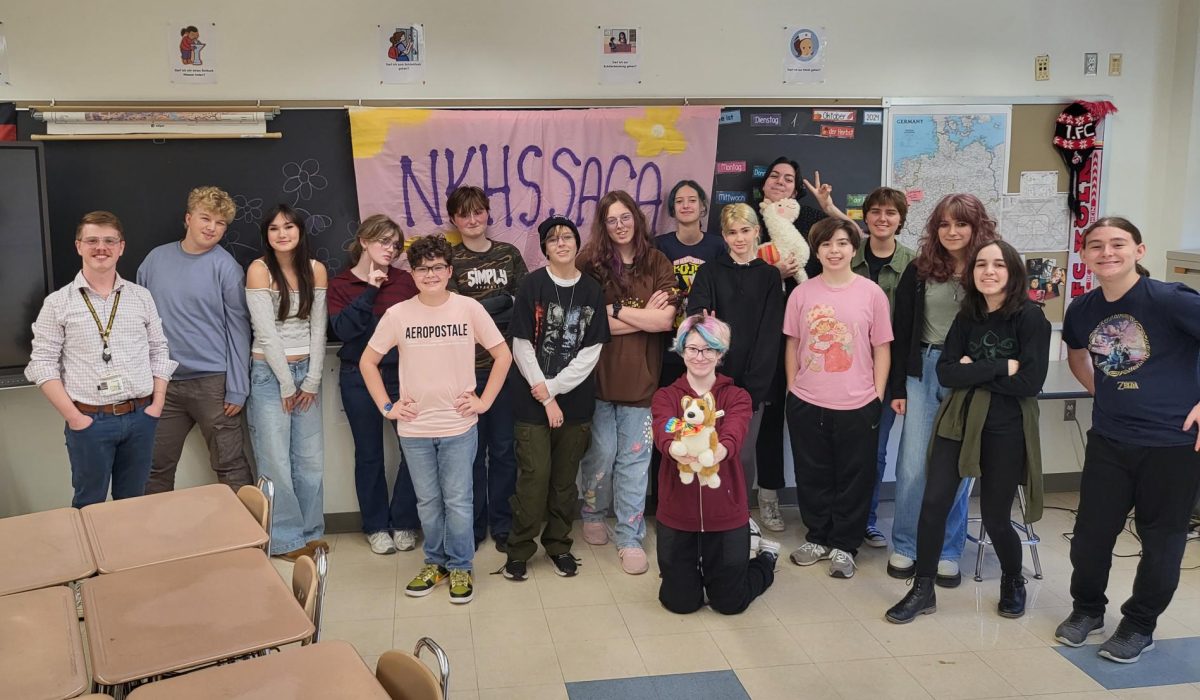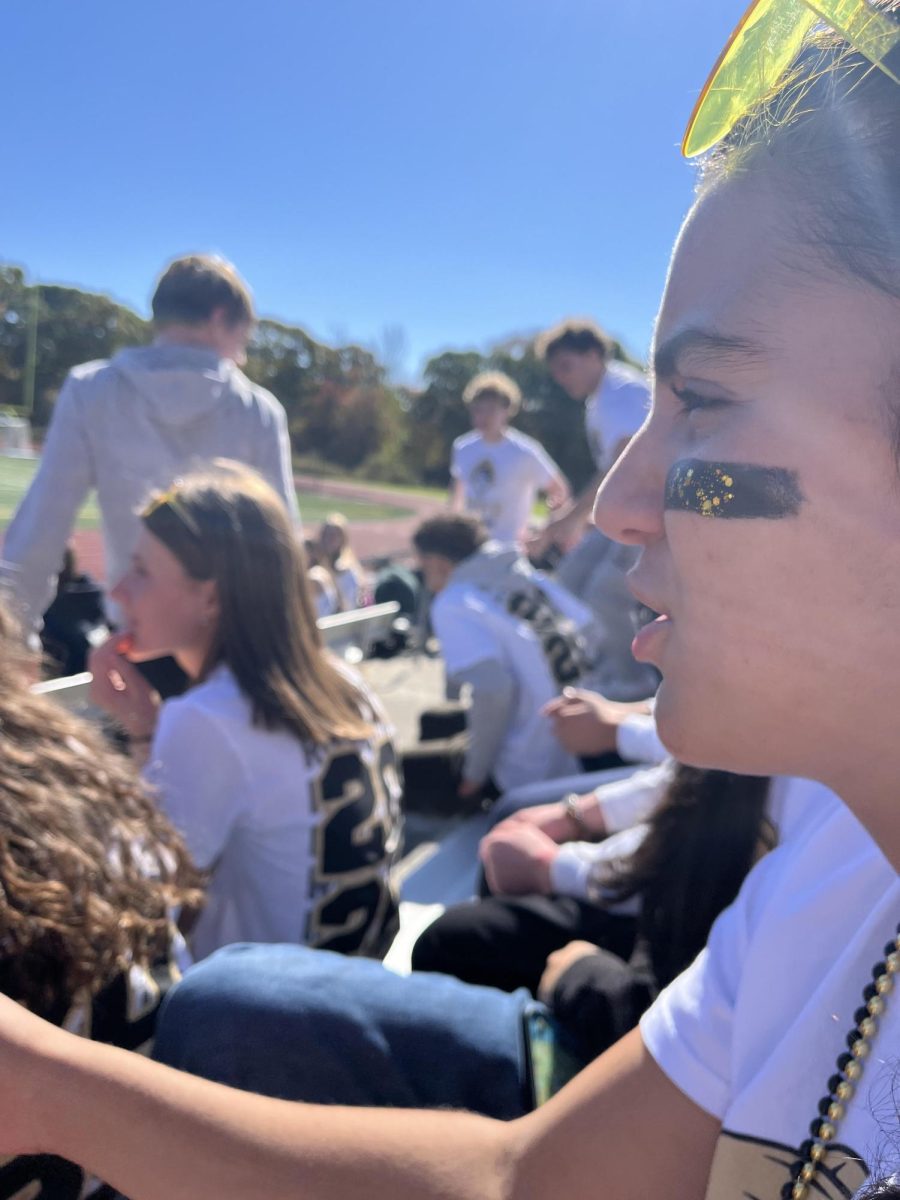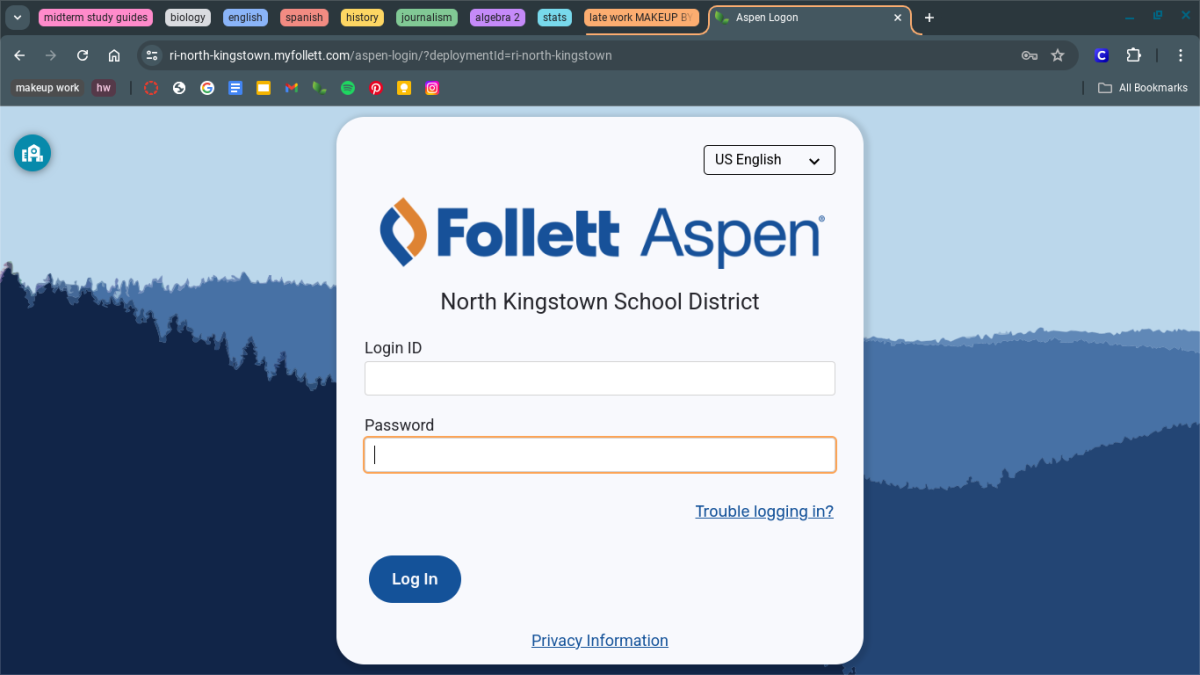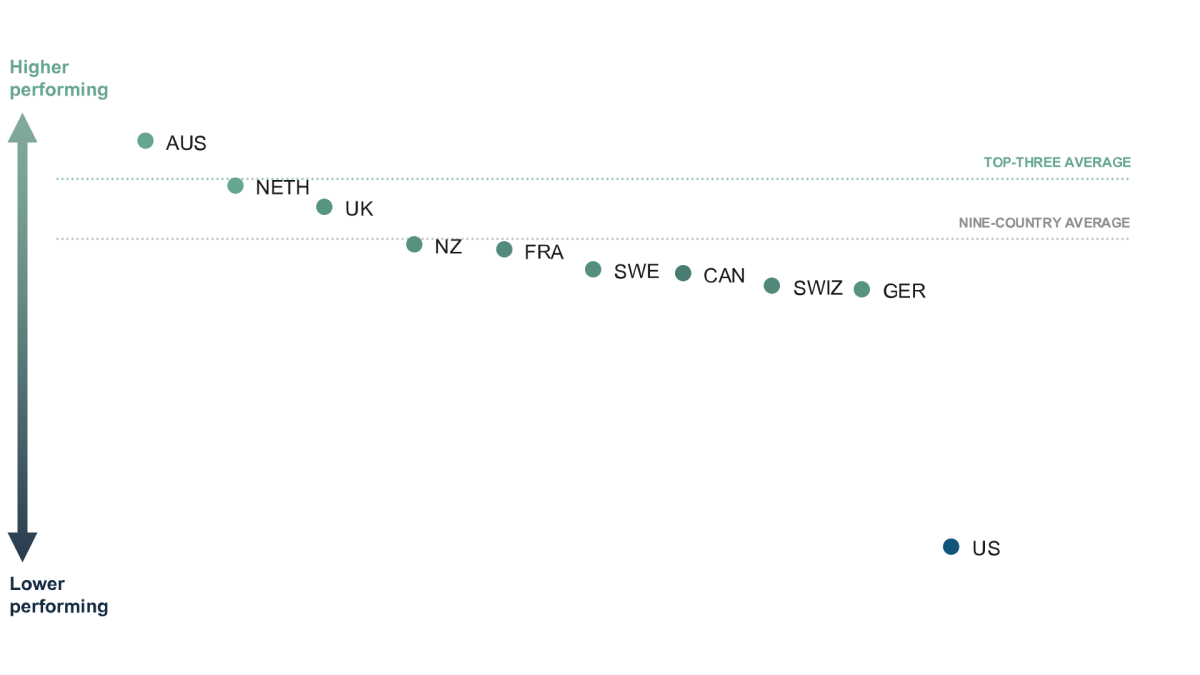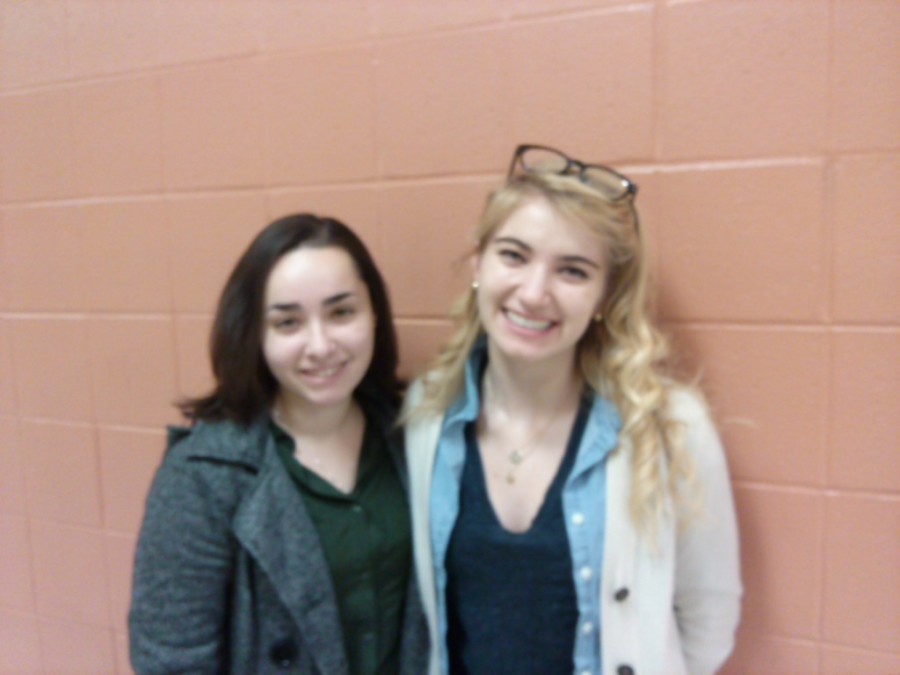Student Government attempts changes despite low attendance
Seniors Erin Chille (left) and Laura Creese (right) are co-presidents of Student Government.
Over the last several months, members of the Student Government have struggled against an unanticipated opposing force – low attendance among most student representatives. In spite of low turnouts at each meeting, the new organization is attempting to improve the school’s overall atmosphere for the benefit of all 1400 students enrolled.
Mr. Liam Mooney, a history teacher, created the organization this year at the request of Dr. Thomas Kenworthy, former principal. Mooney also serves as its sole adviser, while seniors Laura Creese and Erin Chille are the group’s co-presidents. The idea for the group came from a civics project four years ago.
The organization is composed of one elected student representative from each advisory. Each representative serves on one of four committees: Academic Policy, Building and Grounds, Rules and Regulations, or Student / Social Affairs.
“[Student Government] opens up a formal line of communication between students and faculty / administrators,” Mooney said.
Each committee meets at least once per month in Rm. 212, followed by a quarterly group meeting known as the General Assembly. Creese and Chille preside over each General Assembly meeting. They also serve on the Academic Policy Committee and Building and Grounds Committee, respectively.
Although 60 out of roughly 100 advisories chose to elect representatives, only about 15 students are involved in the group’s activities now. In fact, only two or three students have shown up at some committee meetings, Chille said.
The low attendance rates are discouraging for both the organization’s advisor and its two presidents. “I’ve seen little effort on behalf of the majority of representatives,” Mooney said. “Only a handful of them are participating. I am not the students’ voice.”
Even so, the group has managed to make some progress. Representatives have proposed various plans to improve facilities, academic policy, and social activities for the student body. For instance, Chille has proposed a number of changes to increase sanitation in the bathrooms, such as “different soaps, more toilet paper, paper towels, and new faucets.” She also wants to install a stop sign at the entrance to the junior lot.
In addition, Creese has interviewed nearly every department head about their makeup policies for assessments. She is proposing that all academic departments allow students who fail quizzes and tests to retake them for an averaged score.
“I’ve seen inconsistencies between departments and [individual] teachers, which is unfair,” Creese said. “As an upperclassman, I want to help future kids at NK and make an impact.”
Unlike Student Executive Board or Class Council, Student Government does not plan social events or fundraisers. Instead, the group focuses on proposing new policies to administration, and functions more similarly to a student union. In addition, the organization serves the entire student body, not individual grade levels.
Attendance is taken at each meeting, Mooney said, and inactive representatives can be removed at any time. Also, “frequent absentees will receive no accolades” from him and will not be able to include their membership on college applications.
“Elected representatives not partaking [in the group] are taking the opportunity away from other potential representatives,” Mooney said. “We’ve been able to formulate some things, but we haven’t done as much as we could with these numbers [in attendance].”
Likewise, both Chille and Creese encourage more representatives to take part in meetings. “We can make a bigger change in bigger numbers,” Creese said.
Your donation will support the student journalists of North Kingstown High School. Your contribution will allow us to distribute a print edition of the Current Wave to all students, as well as enter journalism competitions.

